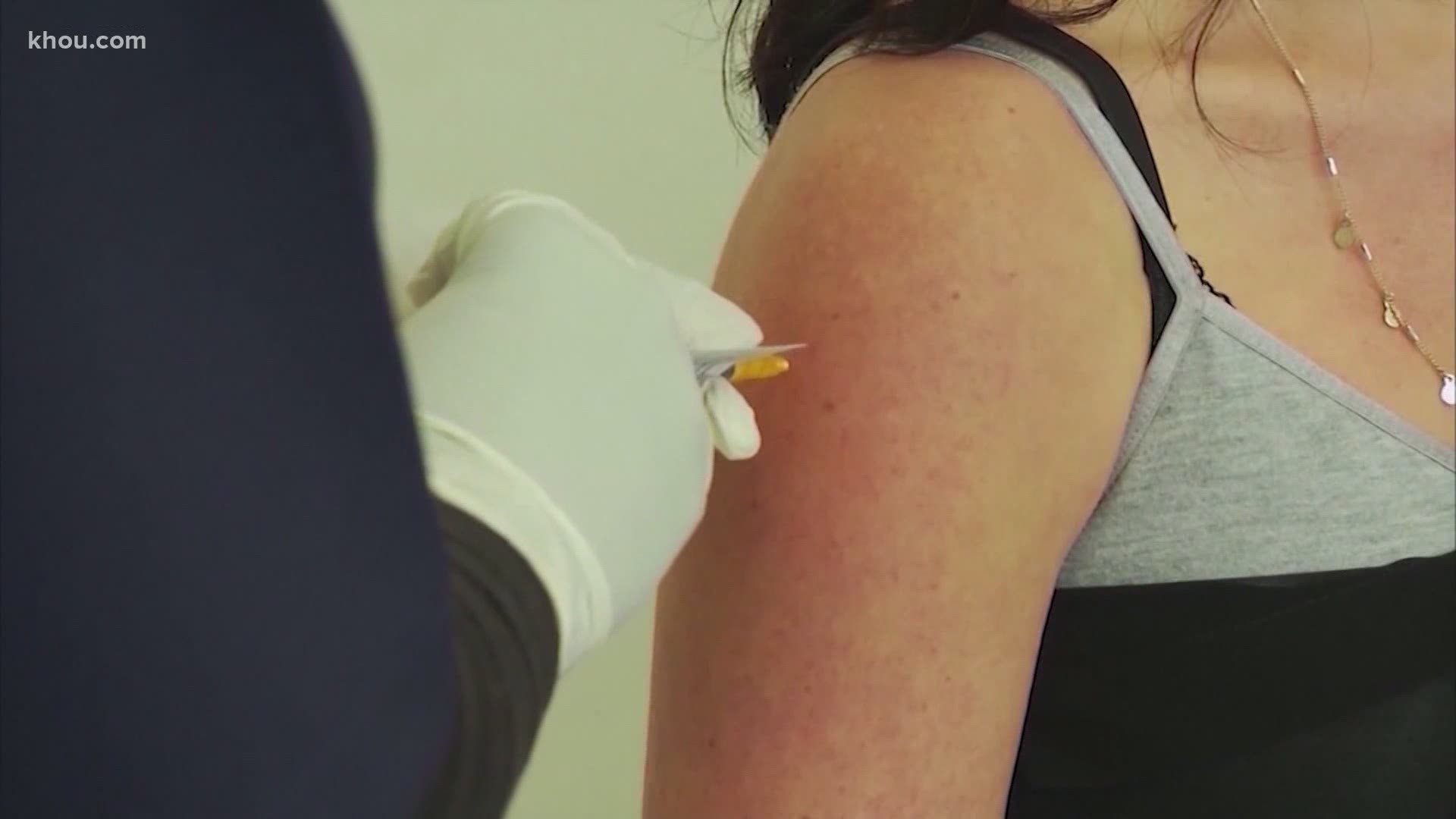HOUSTON — KHOU 11 viewers still have lots of questions about the new COVID-19 vaccines, and we’re getting you answers from the experts.
As Houston’s hospital beds continue to fill with more COVID-19 patients, the FDA is signaling some promising news, indicating help should soon be on its way.
But questions from the public concerning the vaccines remain.
The first set of questions deal with the two separate doses of the vaccine that must be administered for it to be fully effective.
What happens if you skip the second dose?
We’ve asked two infectious disease specialists to weigh in:
“We know that there is some immunity that people will get after a single dose,” said infectious disease expert Dr. Amesh Adalja. “But it may not be as durable, it might not last as long, and it may not be as strong as when you get two doses.”
Infectious disease specialist Dr. Linda Nabha said there really isn't any research that shows what will happen if only one dose is administered.
“We don’t have real life data,” Dr. Nabha said. “We don’t know if we only give someone one vaccine and send them out in the world, what the response is going to be.”
Pfizer says you’ll need to get the second dose three weeks after the first one.
Moderna says for its vaccine, you’ll need it one month getting your first shot.
What if you get your second shot too early?
“If you get the second dose just a day or so too early, it probably doesn’t make too much of a difference,” Dr. Adalja said. “If it is very early, you are likely to not get the benefit of the second dose.”
Viewers also want to know about side effects and the vaccine.
Infectious disease epidemiologist Dr. Catherine Troisi was consulted for this question:
If I have side effects from the COVID-19 vaccine, am I COVID-positive?
“No, you are not,” Dr. Troisi said. “The vaccines cannot possibly give you COVID.”
Troisi said that is because you are not actually being injected with any virus.
The epidemiologist said approximately 50 percent of those who were given the vaccine experienced side effects, but she said that is actually a good sign, because it shows a person’s immune system is ramping up and working.

